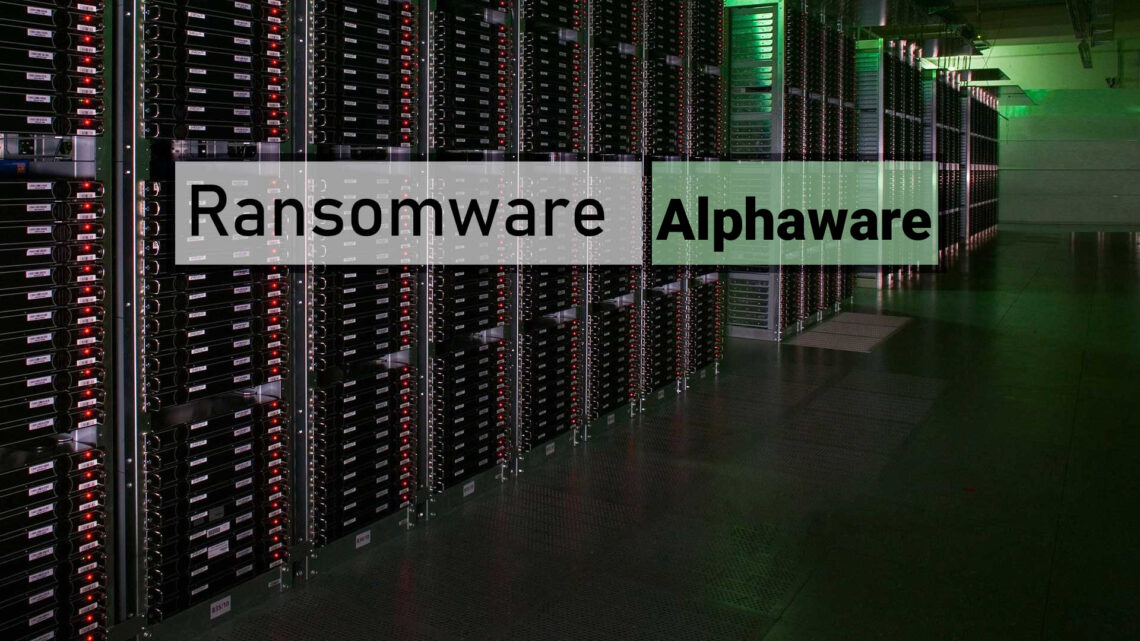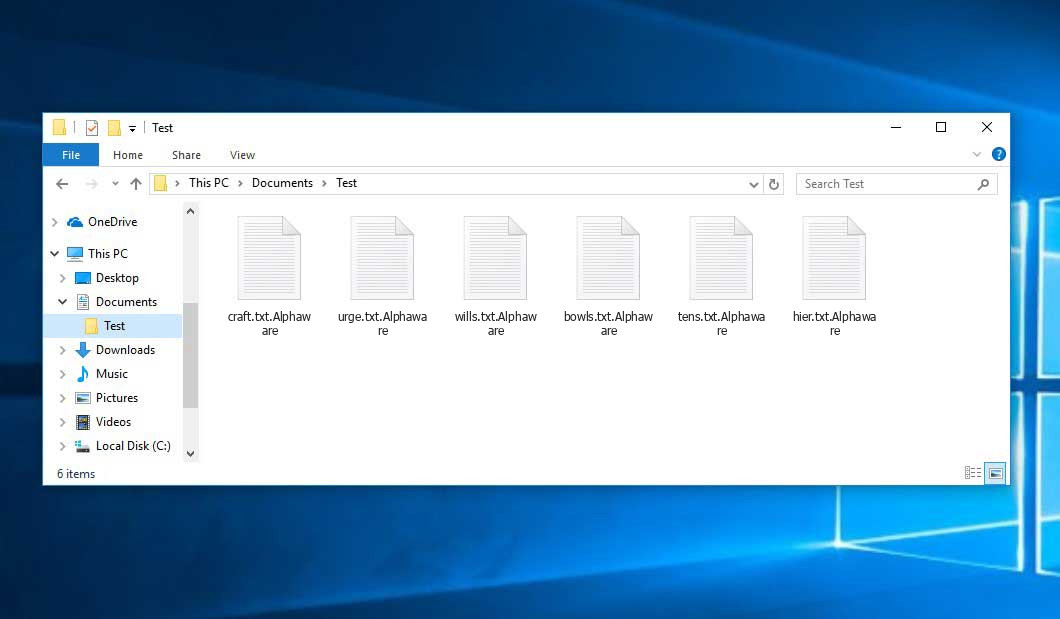The Alphaware virus belongs under the ransomware type of malicious agent. Harmful software of such sort encrypts all the data on your PC (images, documents, excel sheets, music, videos, etc) and appends its extra extension to every file, leaving the readme.txt files in every folder which contains the encrypted files.
What is Alphaware virus?
☝️ A strictly accurate designation for the Alphaware would be “a ransomware malicious agent”.
Alphaware will append its specific .Alphaware extension to the title of each encrypted file. For instance, a file entitled “photo.jpg” will be turned into “photo.jpg.Alphaware”. Likewise, the Excel table named “table.xlsx” will be renamed to “table.xlsx.Alphaware”, and so on.
In every folder that contains the encoded files, a readme.txt text document will be created. It is a ransom money memo. Therein you can find information on the ways of contacting the racketeers and some other remarks. The ransom note most probably contains instructions on how to purchase the decryption tool from the tamperers. You can get this tool after contacting grwxzbny42fnyku4s@proton.me through email. That is how they do it.
Alphaware overview:
| Name | Alphaware Virus |
| Extension | .Alphaware |
| Ransomware note | readme.txt |
| Ransom | $300 |
| Contact | grwxzbny42fnyku4s@proton.me |
| Detection | Trojan:MSIL/Polyransom.psyF!MTB, Injector.Trojan.MSIL.DDS, MSIL:Crypt-AH [Drp] |
| Symptoms | Your files (photos, videos, documents) get a .Alphaware extension and you can’t open them. |
| Fix Tool | See If Your System Has Been Affected by Alphaware virus |
The readme.txt file coming in package with the Alphaware ransomware provides the following dispiriting information:
~You have been infected with Alphaware~ >>>> Your data has been stolen and encrypted You have 24 hours to send us $300 worth of bitcoin. If you do not pay the Ransom all your files, data, and personal information will released on the dark web. Failure to pay your ransom will also result with ALL of your files being deleted and your pc being wiped. We will also leak your Personal information to multiple discord servers and dox bin. All your information will forever be on the internet for people to download and exploit. >>>> Where do I pay you? Send us 0.01767966 BTC To the bitcoin address: 17CqMQFeuB3NTzJ2X28tfRmWaPyPQgvoHV >>>> What happens when I pay? When we receive payment we will send you your own personal decrypter to free your files and data. It is impossible to decrypt your files without our help. >>>> You will need to contact us to receive your decrypter Send us an email with proof of payment and we will respond with your decrypter. You can email us @grwxzbny42fnyku4s@proton.me >>>> Who are we? We are Alpha, a group of skilled hackers whos purpose is to take control and power over people.
In the picture below, you can see what a directory with files encrypted by the Alphaware looks like. Each filename has the “.Alphaware” extension added to it.
How did Alphaware ransomware end up on my PC?
There are many possible ways of ransomware infiltration.
There are currently three most popular methods for tamperers to have ransomware acting in your system. These are email spam, Trojan infiltration and peer file transfer.
If you access your mailbox and see letters that look like familiar notifications from utility services companies, delivery agencies like FedEx, web-access providers, and whatnot, but whose addresser is unknown to you, be wary of opening those letters. They are very likely to have a ransomware item attached to them. Therefore, it is even riskier to download any attachments that come with letters like these.
Another option for ransom hunters is a Trojan horse scheme. A Trojan is a program that gets into your machine pretending to be something else. For example, you download an installer of some program you want or an update for some service. However, what is unpacked reveals itself a harmful agent that corrupts your data. Since the installation wizard can have any title and any icon, you’d better be sure that you can trust the source of the stuff you’re downloading. The optimal way is to use the software companies’ official websites.
As for the peer networks like torrent trackers or eMule, the threat is that they are even more trust-based than the rest of the Web. You can never know what you download until you get it. Our suggestion is that you use trustworthy resources. Also, it is a good idea to scan the folder containing the downloaded objects with the anti-malware utility as soon as the downloading is finished.
How to remove the Alphaware virus?
It is important to note that besides encrypting your data, the Alphaware virus will most likely deploy Vidar Stealer on your PC to get access to credentials to different accounts (including cryptocurrency wallets). The mentioned program can extract your logins and passwords from your browser’s auto-filling cardfile.
Sometimes criminals would decrypt several of your files so you know that they do have the decryption tool. As Alphaware virus is a relatively recent ransomware, anti-malware engineers have not yet found a method to reverse its work. Nevertheless, the decryption instruments are frequently updated, so the effective countermeasure may soon arrive.
Sure thing, if the evildoers succeed in encrypting victim’s critical files, the desperate person will probably fulfill their demands. However, paying a ransom gives no guarantee that you’re getting your files back. It is still dangerous. After obtaining the money, the racketeers may deliver a wrong decryption code to the victim. There were reports about malefactors just disappearing after getting the money without even bothering to reply.
The best solution against ransomware is to have a system restore point or the copies of your critical files in the cloud disk or at least on an external drive. Obviously, that might be insufficient. The most crucial thing could be that file you were working on when it all started. But at least it is something. It is also wise to scan your drives with the antivirus program after the OS restoration.
Alphaware is not the only ransomware of its kind, since there are other specimens of ransomware out there that act in the same manner. For instance, Qore, Foza, Xatz, and some others. The two main differences between them and the Alphaware are the ransom amount and the method of encryption. The rest is the same: files become encrypted, their extensions altered, ransom notes are found in every directory containing encrypted files.
Some fortunate users were able to decode the arrested files with the aid of the free software provided by anti-ransomware specialists. Sometimes the racketeers accidentally send the decryption key to the victims in the ransom readme. Such an epic fail allows the user to restore the files. But of course, one should never rely on such a chance. Remember, ransomware is a tamperers’ technology to lay their hands on the money of their victims.
How сan I avert ransomware attack?
Alphaware ransomware doesn’t have a endless power, so as any similar malware.
You can armour your computer from ransomware infiltration in three easy steps:
- Never open any emails from unknown mailers with unknown addresses, or with content that has likely no connection to something you are expecting (how can you win in a money prize draw without participating in it?). In case the email subject is likely something you are expecting, scrutinize all elements of the suspicious letter with caution. A fake email will always have mistakes.
- Avoid using cracked or untrusted software. Trojan viruses are often shared as a part of cracked software, most likely as a “patch” preventing the license check. But dubious programs are very hard to distinguish from reliable ones, as trojans sometimes have the functionality you need. You can try searching for information on this software product on the anti-malware message boards, but the optimal way is not to use such programs at all.
- And to be sure about the safety of the files you downloaded, scan them with GridinSoft Anti-Malware. This software will be a perfect defense for your personal computer.
Reasons why I would recommend GridinSoft1
There is no better way to recognize, remove and prevent ransomware than to use an anti-malware software from GridinSoft2.
Download Removal Tool.
You can download GridinSoft Anti-Malware by clicking the button below:
Run the setup file.
When setup file has finished downloading, double-click on the setup-antimalware-fix.exe file to install GridinSoft Anti-Malware on your computer.
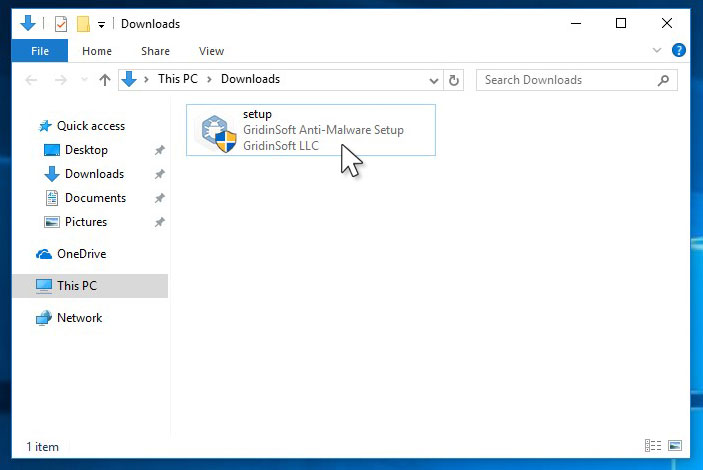
An User Account Control asking you about to allow GridinSoft Anti-Malware to make changes to your device. So, you should click “Yes” to continue with the installation.
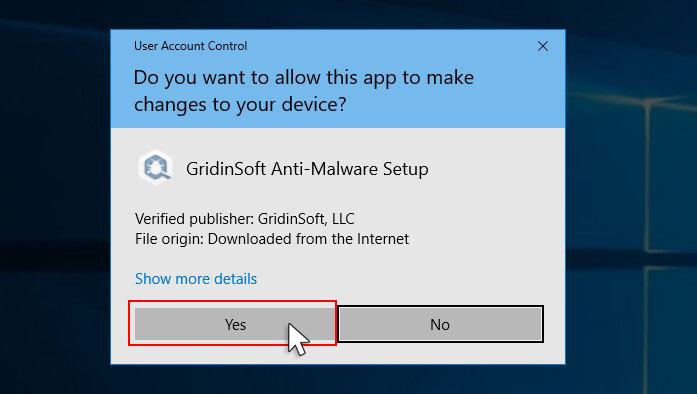
Press “Install” button.
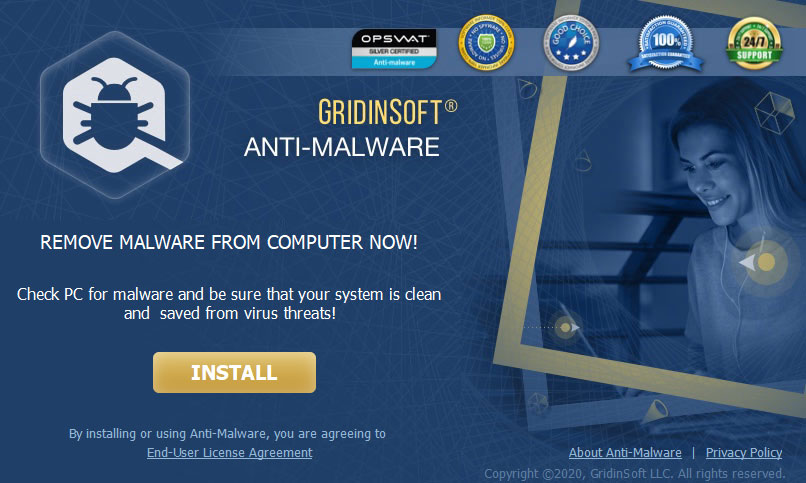
Once installed, Anti-Malware will automatically run.
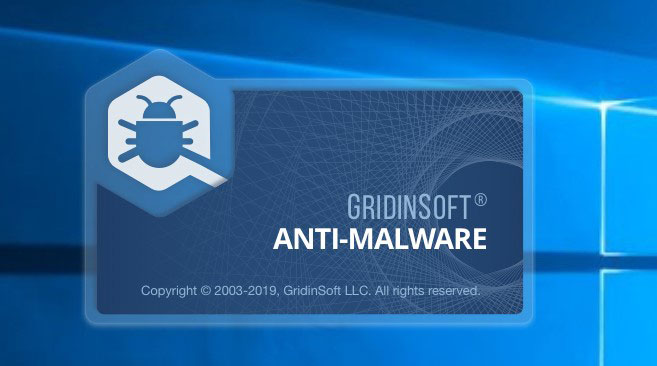
Wait for the Anti-Malware scan to complete.
GridinSoft Anti-Malware will automatically start scanning your PC for Alphaware infections and other malicious programs. This process can take a 20-30 minutes, so I suggest you periodically check on the status of the scan process.
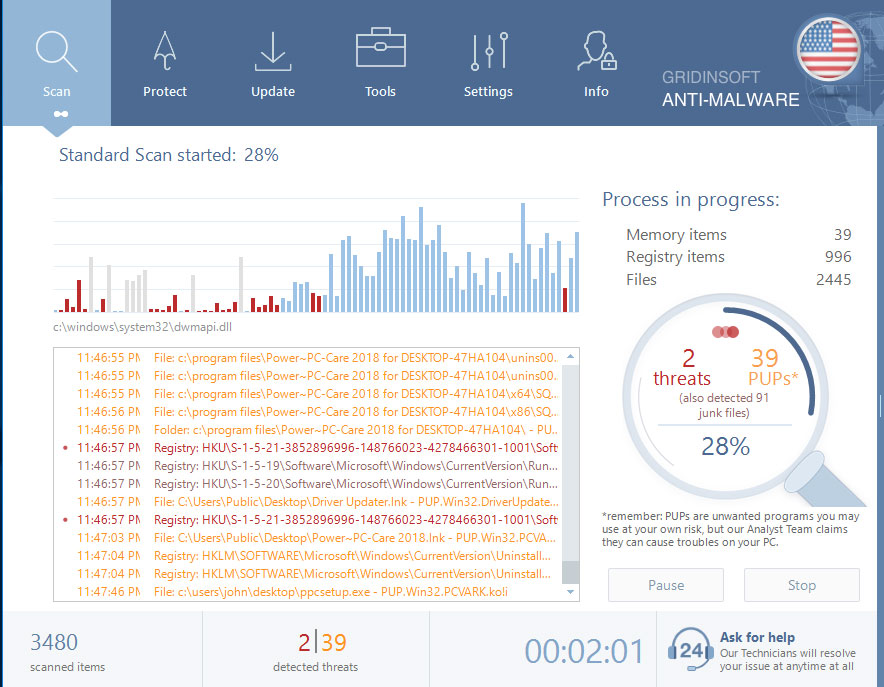
Click on “Clean Now”.
When the scan has finished, you will see the list of infections that GridinSoft Anti-Malware has detected. To remove them click on the “Clean Now” button in right corner.
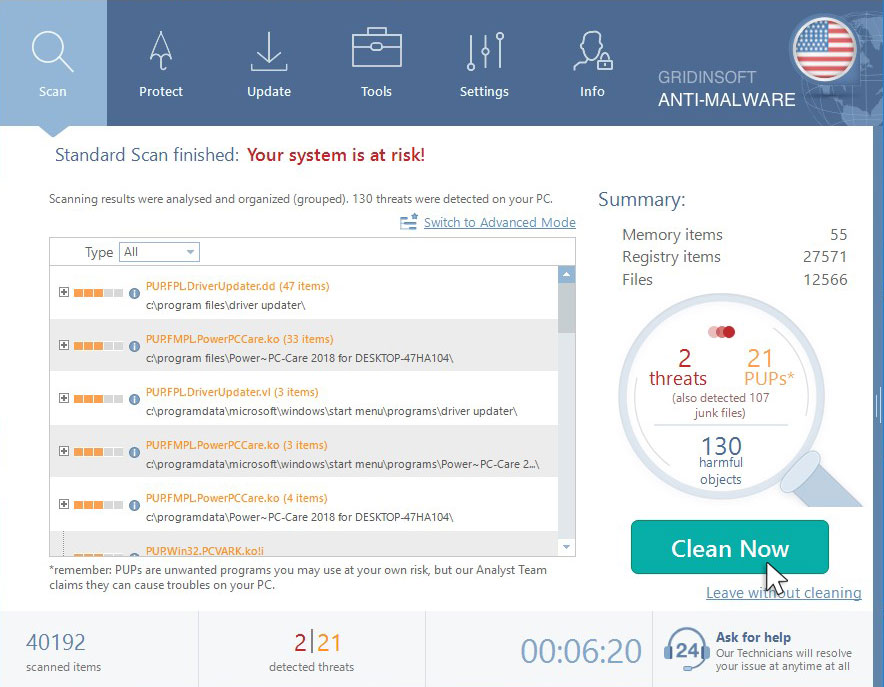
FAQ
🤔 How can I open “.Alphaware” files?Are the “.Alphaware” files accessible?
Unfortunately, no. You need to decipher the “.Alphaware” files first. Then you will be able to open them.
🤔 I really need to decrypt those “.Alphaware” files ASAP. How can I do that?
Hopefully, you have made a copy of those important files. Otherwise, you might try to employ System Restore. The only question is whether you have saved any Restore Points that would be helpful now. The rest of the methods require patience.
🤔 You have advised using GridinSoft Anti-Malware to get rid of the Alphaware virus. Does it mean that all my files, currently encrypted, will be removed too?
No way! Unlike the ransomware program itself, the encrypted files do not jeopardize your system.
With the help of GridinSoft Anti-Malware, you can clean your PC off the actual threats. The virus that has infiltrated your computer is must be still active and running scans every so often to arrest any new files you might create on your PC after the attack. As it has been said above, the Alphaware malware does not come alone. It installs backdoors and keyloggers that can take your account passwords by trespass and provide malefactors with easy access to your system in the future.
🤔 What actions should I take if the Alphaware ransomware has blocked my computer and I can’t get the activation key.
If that happened, you need to prepare a flash memory drive with a pre-installed Trojan Killer. Use Safe Mode to execute the procedure. You see, the ransomware starts automatically as the system boots and encrypts any new files created or imported into your computer. To suppress this function – use Safe Mode, which allows only the vital programs to run upon system start. Consider reading our manual on booting Windows in Safe Mode.
🤔 And what should I do now?
Many of the blocked files might still be within your reach
- If you sent or received your important files through email, you could still download them from your online mail server.
- You may have shared images or videos with your friends or relatives. Simply ask them to post those pictures back to you.
- If you have initially downloaded any of your files from the Internet, you can try doing it again.
- Your messengers, social networks pages, and cloud drives might have all those files as well.
- It might be that you still have the needed files on your old PC, a laptop, phone, flash memory, etc.
HINT: You can use file recovery utilities3 to get your lost data back since ransomware encrypts the copies of your files, deleting the authentic ones. In the video below, you can see how to use PhotoRec for such a recovery, but be advised: you won’t be able to do it before you eradicate the ransomware itself with an antivirus program.
Also, you can contact the following governmental fraud and scam sites to report this attack:
- In the United States: On Guard Online;
- In Canada: Canadian Anti-Fraud Centre;
- In the United Kingdom: Action Fraud;
- In Australia: SCAMwatch;
- In New Zealand: Consumer Affairs Scams;
- In France: Agence nationale de la sécurité des systèmes d’information;
- In Germany: Bundesamt für Sicherheit in der Informationstechnik;
- In Ireland: An Garda Síochána;
To report the attack, you can contact local executive boards. For instance, if you live in USA, you can have a talk with FBI Local field office, IC3 or Secret Service.
I need your help to share this article.
It is your turn to help other people. I have written this article to help users like you. You can use the buttons below to share this on your favorite social media Facebook, Twitter, or Reddit.
Brendan SmithHow to Remove ALPHAWARE Ransomware & Recover PC
Name: ALPHAWARE Virus
Description: ALPHAWARE Virus is a ransomware-type infections. This virus encrypts important personal files (video, photos, documents). The encrypted files can be tracked by a specific .Alphaware extension. So, you can't use them at all.
Operating System: Windows
Application Category: Virus
User Review
( votes)References
- GridinSoft Anti-Malware Review from HowToFix site: https://howtofix.guide/gridinsoft-anti-malware/
- More information about GridinSoft products: https://gridinsoft.com/comparison
- Here are Best Data Recovery Software Of 2023.

